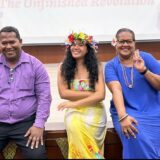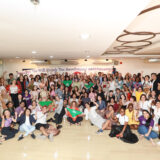Day Two: 2nd Youth Refresher Institute for Safe Abortion Advocacy
On Day two of the 2nd Refresher Institute we began with sharing learnings from Day 1, the process generated interesting reflections and discussion. The next session ‘Revisiting reproduction, contraception, safe abortion’ facilitated by Dr. Suchitra Dalvie focused on refreshing everyone’s understanding of how pregnancy occurs and how it can be prevented. It further went on to clarify myths and misconceptions around these issues and explain safe abortion techniques and related concerns in simple language. She further went on to explain access to safe abortion as a public health and human rights issue elaborating on the public health impact and safe abortion being addressed in various international documents. We had a very interesting discussion about the role of hotlines/ helplines in giving information to women about dealing with unwanted pregnancies but remembering that these events are embedded in many other life events and we should be able to at least refer these women and girls for help they may need for issues of violence, HIV , rape , depression etc.
The third session ‘Historical perspectives on the feminist movement and the International Campaign on Women’s Right to Safe Abortion’; provided understanding about the roots of the women’s rights movements and current challenges that exist. It also highlighted the current advocacy efforts in the region and movement building.
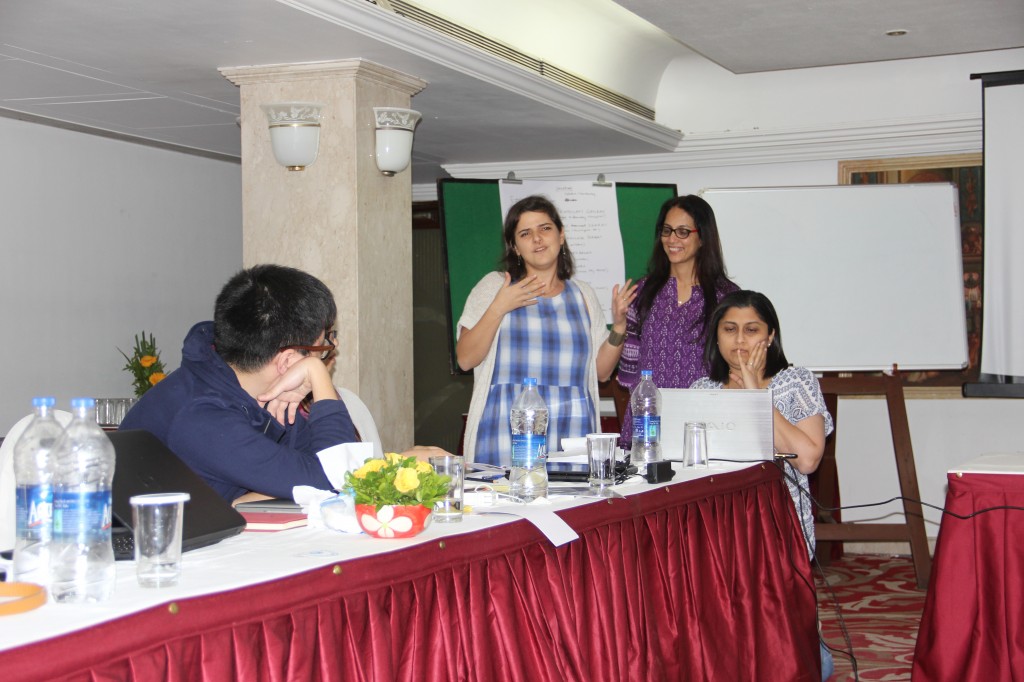 Rola’s presentation on the health care system and women healers: via a historical feminist lens- provided interesting insights into the history of women healers from witches to midwives to nurses. It explained how the present system was born and shaped by the competition between male and female healers and the horrifying witch hunts in the 13th and 14th centuries in Europe which resulted in the deaths of over 600 women in one year in Germany. We also learnt how the institutional sexism that we see in medical profession today is deep rooted and sustained by a class system that supports male power.
Rola’s presentation on the health care system and women healers: via a historical feminist lens- provided interesting insights into the history of women healers from witches to midwives to nurses. It explained how the present system was born and shaped by the competition between male and female healers and the horrifying witch hunts in the 13th and 14th centuries in Europe which resulted in the deaths of over 600 women in one year in Germany. We also learnt how the institutional sexism that we see in medical profession today is deep rooted and sustained by a class system that supports male power.
Anupriya spoke about the issue of sex selection and women’s right to safe abortion in India highlighting the key concerns, conflation, government’s response and efforts of the civil society. Prabina gave a historical overview of the feminist movement in Nepal and the role it played in the establishment of the abortion law. Krishti introduced Bangladesh Assembly of Youth Advocates (BAYA) https://www.facebook.com/bayaofficial?ref=br_tf which is also the first youth network in Bangladesh discussing SRHR issues and how this network has provided a common platform for youth advocates to come together and engage in discussions on issues relating to sexual and reproductive health and rights.
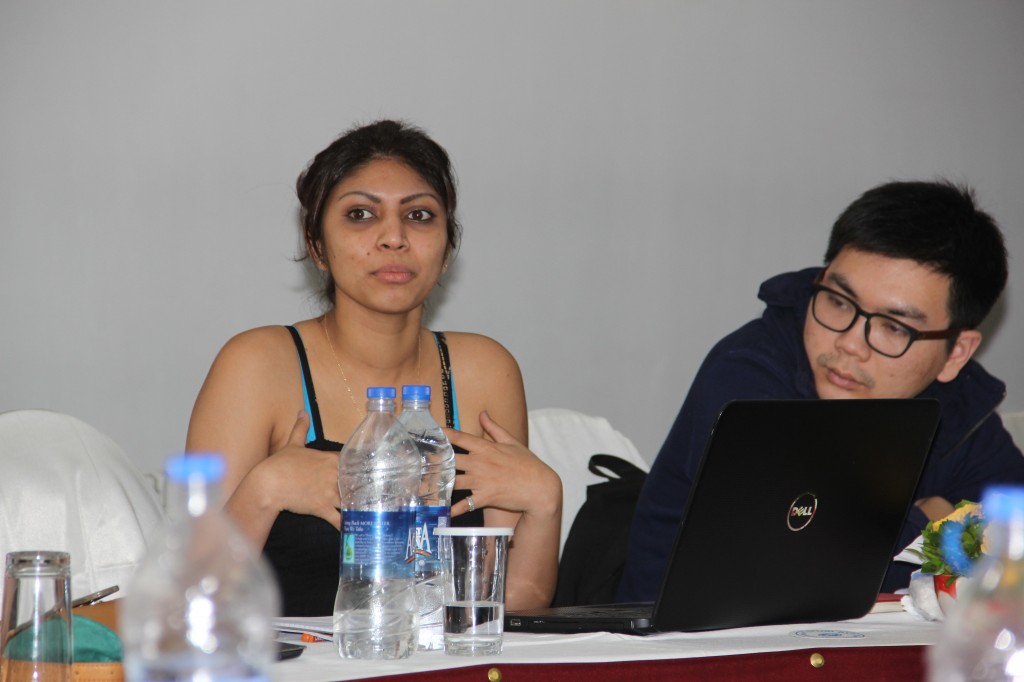 Sarah, Smriti and Garima shared their experiences from the Asia Pacific Regional Review on the Beijing +20 and shared with the group the current advocacy efforts in the region and formation of a young women’s caucus to promote effective participation of young women in political spaces, decision making platforms and accountability mechanism and create an enabling environment for building leadership of young women. Katayon from Afghanistan spoke about the challenges to women’s sexual and reproductive rights in restrictive environments.
Sarah, Smriti and Garima shared their experiences from the Asia Pacific Regional Review on the Beijing +20 and shared with the group the current advocacy efforts in the region and formation of a young women’s caucus to promote effective participation of young women in political spaces, decision making platforms and accountability mechanism and create an enabling environment for building leadership of young women. Katayon from Afghanistan spoke about the challenges to women’s sexual and reproductive rights in restrictive environments.
 The last session of the day ‘Sexuality and Abortion’ was the most stimulating and thought provoking, it aimed to help participants understand the concept of sexuality, sexual health and rights and also understand the impact of sexuality on the issue of safe abortion access. The session was facilitated by Dr. Shilpa Shroff and Rola Yasmine and some very interesting film clippings were shared to facilitate the discussions (watch the videos here http://vimeo.com/13605859 ).
The last session of the day ‘Sexuality and Abortion’ was the most stimulating and thought provoking, it aimed to help participants understand the concept of sexuality, sexual health and rights and also understand the impact of sexuality on the issue of safe abortion access. The session was facilitated by Dr. Shilpa Shroff and Rola Yasmine and some very interesting film clippings were shared to facilitate the discussions (watch the videos here http://vimeo.com/13605859 ).
While elaborating on sexuality and how it has been debated and defined Rol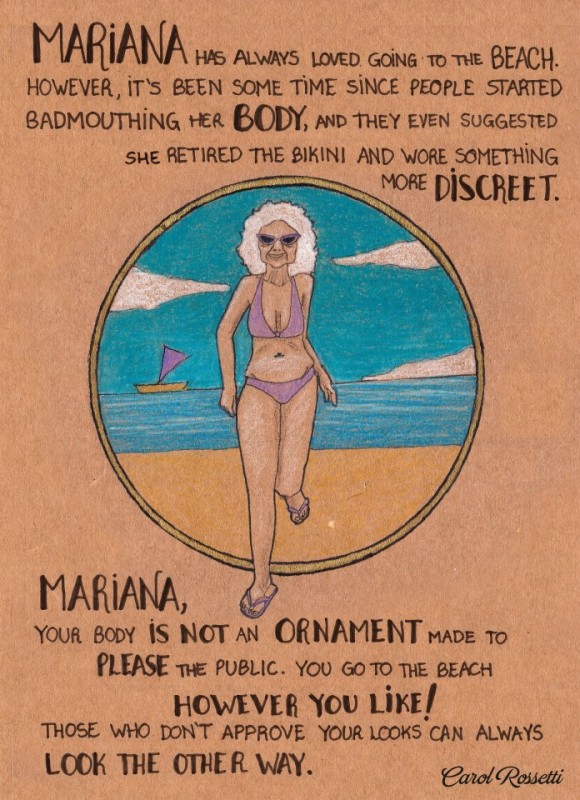
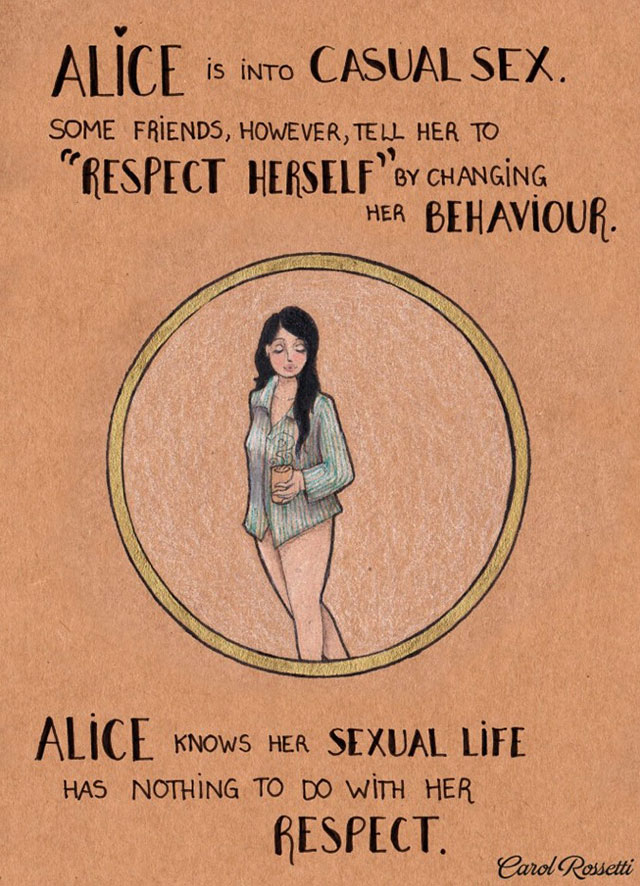 a made a very interesting case of how ‘sex-positivity can be used in our abortion advocacy’. She further went on to explain how sex positivity does not necessarily have to do with sex and includes a whole ambit of issues that relate to mental health, body image, sexual orientation, sexual violence, bodily rights, gender identity, gender expression, racism, ability & disability, motherhood, livelihood, living situation, and life choices and expectations. She elaborated this with interesting illustrations by Carol Rossetti(http://carolrossettidesign.tumblr.com/ )
a made a very interesting case of how ‘sex-positivity can be used in our abortion advocacy’. She further went on to explain how sex positivity does not necessarily have to do with sex and includes a whole ambit of issues that relate to mental health, body image, sexual orientation, sexual violence, bodily rights, gender identity, gender expression, racism, ability & disability, motherhood, livelihood, living situation, and life choices and expectations. She elaborated this with interesting illustrations by Carol Rossetti(http://carolrossettidesign.tumblr.com/ )
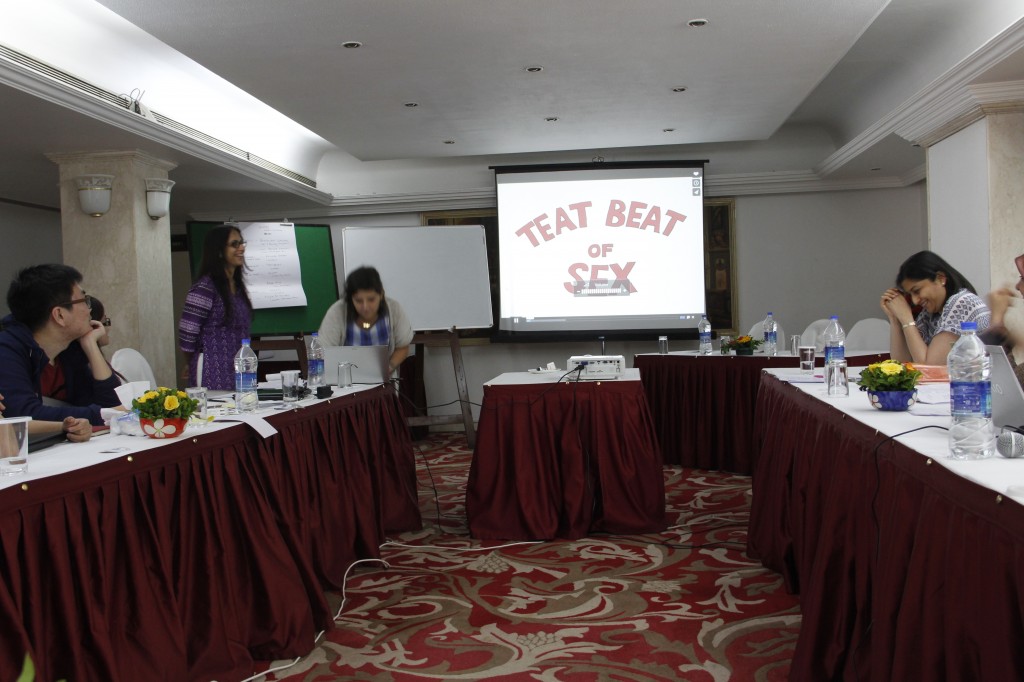 The last session generated very fascinating and enriching discussions around how compulsory heteronormativity and hetero-patriarchy manifests in terms of women’s rights to seek out safe abortion and provided a lot of food for thought.
The last session generated very fascinating and enriching discussions around how compulsory heteronormativity and hetero-patriarchy manifests in terms of women’s rights to seek out safe abortion and provided a lot of food for thought.
This is how we concluded a yet another very exciting day of our 2nd refresher institute; stay tuned for more updates to follow.





